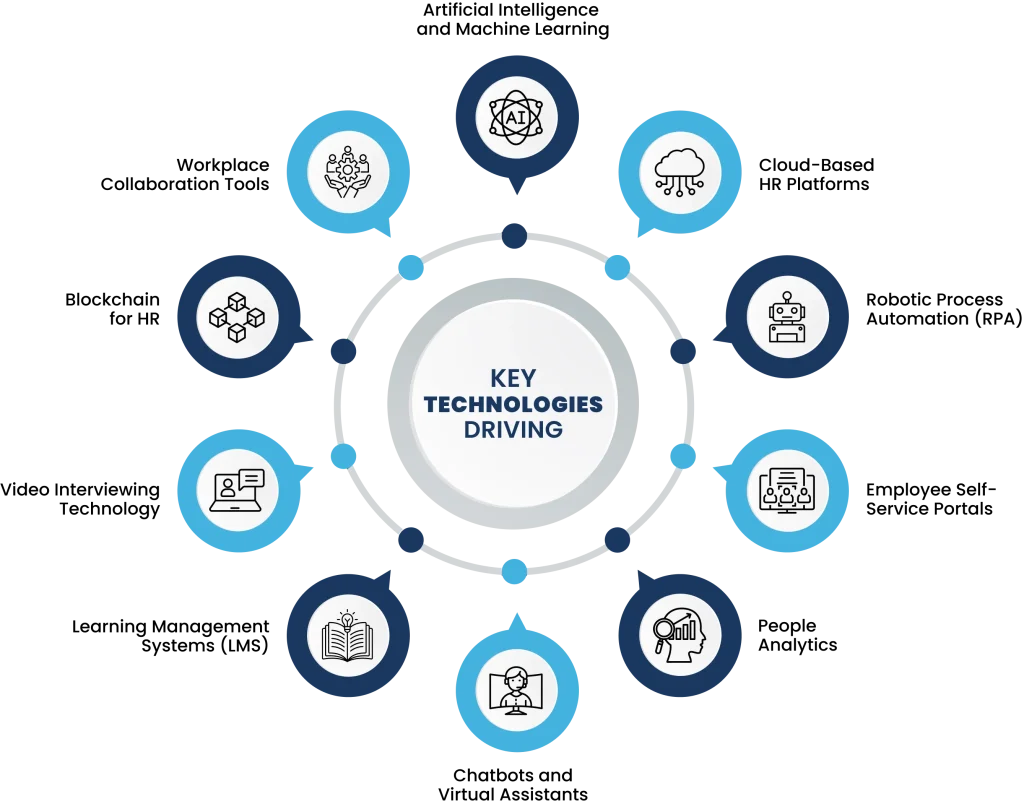Last Updated on –
HR
HR Digital Transformation: Shaping the Future of Human Resources
The world of Human Resources (HR) has undergone a significant shift in recent years, with digital transformation playing a pivotal role. As businesses increasingly move towards technology-driven solutions, the traditional HR practices are evolving to meet the demands of a modern, dynamic workplace. HR digital transformation refers to the integration of technology into HR processes, enabling HR departments to streamline operations, enhance employee experience, and drive organizational success.
1. The Need for HR Digital Transformation
The need for digital transformation in HR is primarily driven by the growing demand for efficiency, data-driven decision-making, and improved employee experience. In the past, HR departments were burdened with time-consuming manual tasks such as processing payroll, managing benefits, and maintaining employee records. These tasks were not only time-consuming but also susceptible to human error. As companies embrace automation and data analytics, HR departments can free up time for more strategic roles, such as talent management, leadership development, and organizational culture building.
2. Key Technologies Driving HR Digital Transformation

2.1 Artificial Intelligence (AI) and Machine Learning
2.2 Cloud-Based HR Platforms
2.3 Robotic Process Automation (RPA)
2.4 Employee Self-Service Portals
2.5 People Analytics
2.6 Chatbots and Virtual Assistants
2.7 Learning Management Systems (LMS)
2.8 Video Interviewing Technology
2.9 Blockchain for HR
Blockchain secures employee records, preventing unauthorized access and tampering. It also helps verify qualifications, reducing the risk of fraud in hiring. Blockchain provides transparent and tamper-proof documentation for audits and compliance.
2.10 Workplace Collaboration Tools
3. Benefits of HR Digital Transformation
3.1 Improved Efficiency and Automation
3.2 Data-Driven Decision Making
3.3 Enhanced Employee Experience
3.4 Cost Savings
3.5 Improved Recruitment and Talent Acquisition
3.6 Better Compliance and Risk Management
3.7 Increased Agility and Scalability
3.8 Enhanced Collaboration and Communication
3.9 Improved Employee Performance Management
3.10 Better Talent Retention
Conclusion
HR digital transformation is not just a trend, it’s a necessity for businesses aiming to remain competitive in today’s rapidly changing environment. By embracing digital tools and technologies, HR can optimize operations, improve employee satisfaction, and drive long-term success. As organizations continue to evolve, the role of HR will be more critical than ever in shaping the future of work.
